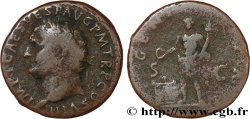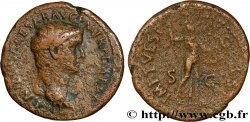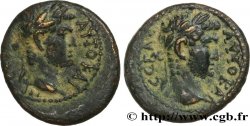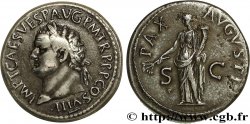brm_784280 - TITUS Sesterce
Количество
Добавить в корзину

Тип Sesterce
Дата: 80-81
Монетный двор / Город: Bithynie ou Thrace
Металл: copper
Диаметр: 33 mm
Ориентация осей монеты: 6 h.
Вес: 24,29 g.
Редкость: R2
Комментарии о состоянии
Monnaie idéalement centrée à l’usure régulière. Joli portrait de Titus. Patine marron
Ссылки в каталоге: :
Лицевая сторона
Аверс: легенда: IMP T CAES DIVI VESP F AVG P M TR P COS VIII.
Аверс: описание: Tête laurée de Titus à droite (O*).
Аверс: перевод: “Imperator Titus Cæsar Divi Vespasianus Filius Augustus Pontifex Maximus Tribunicia Potestate Consul octavum”, (L’empereur Titus césar fils du divin Vespasien auguste, grand pontife, revêtu de la puissance tribunitienne, consul pour la huitième fois).
Обратная сторона
Реверс: легенда: PAX - AVGVST/ S|C.
Реверс: Описание: Pax (la Paix) drapée, debout à gauche, tenant un caducée de la main gauche et une branche d’olivier de la main droite.
Реверс: перевод: “Pax Augusti”, (La Paix de l’auguste).
Комментарий
Ce type est très rare et a été successivement attribué à Lyon, un atelier bithynien et un atelier thrace. Les auteurs du Roman Provincial Coinage ont recensé 39 exemplaires. Ce type est souvent mal classé, parfois attribué à Rome. Ce type serait frappé après la divinisation de Vespasien en 80 et après les émissions de restitution. Ruban de type 3. Titus reçoit son huitième consulat le 1er janvier 80, alors que Domitien prend son septième.







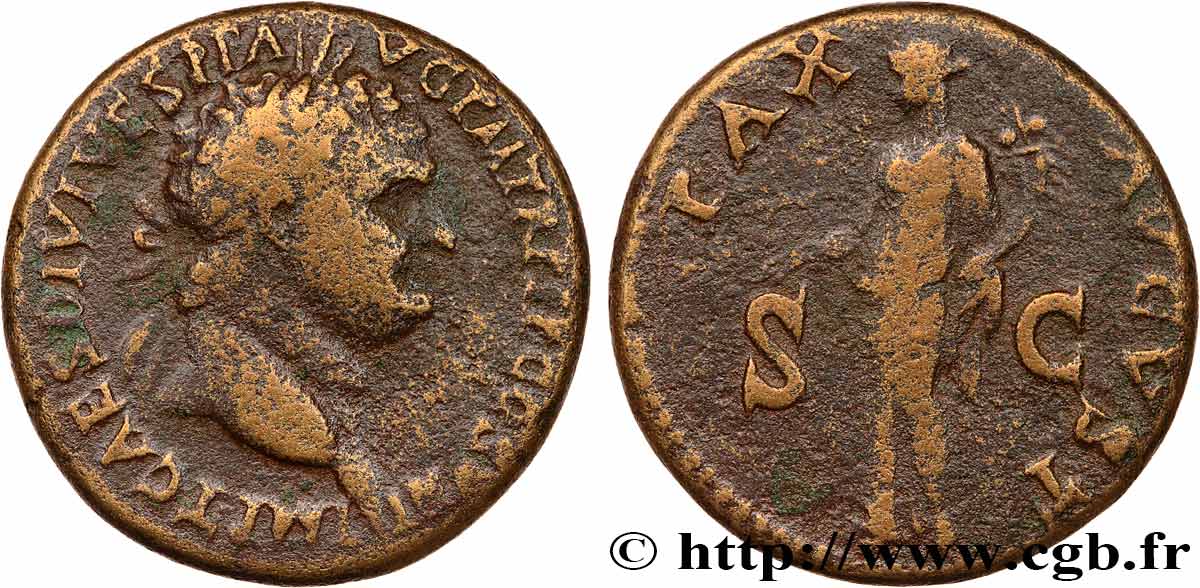
 Cообщить об ошибке
Cообщить об ошибке Распечатать страницу
Распечатать страницу Отправить мой выбор
Отправить мой выбор Задать вопрос
Задать вопрос Consign / sell
Consign / sell
 Информация
Информация